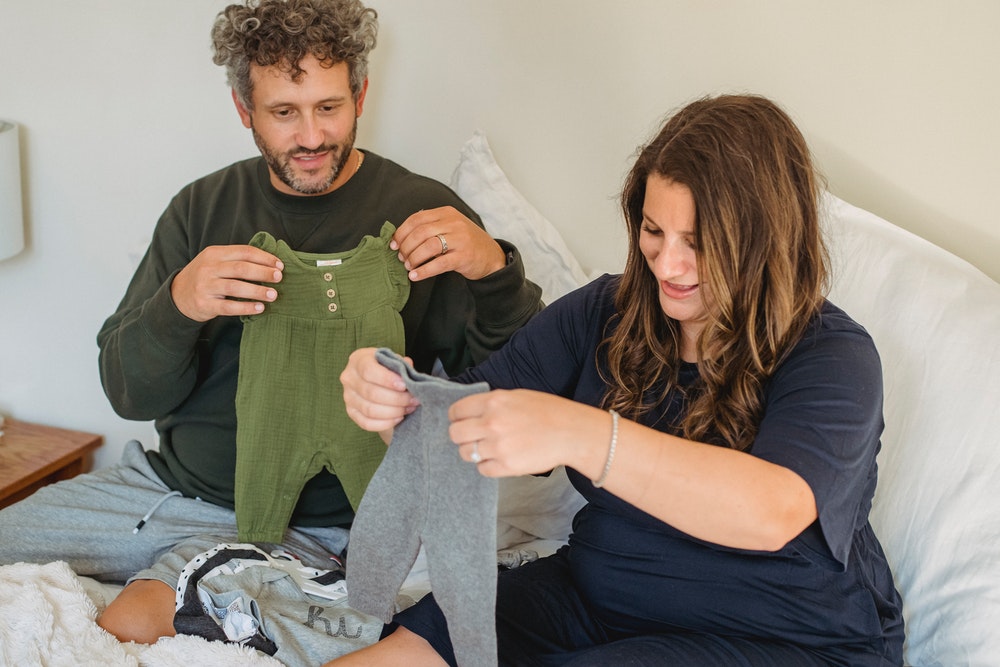Bones serve many functions in the body, including structure, organ protection, muscle anchoring, and calcium storage. While building healthy and strong bones throughout childhood and teenage years is essential, you can also protect bone health during adulthood.
Bone health is vital for a person’s development. Bone health is essential at any age, especially as you age. Maintaining solid bones can reduce your chances of breaking them if you fall. Recently, there has been an increase in bone problems in children and adults due to the lack of vitamin D, calcium, and weight-bearing exercise.
Osteoporosis and its related complications, such as painful vertebral compression fractures in the spine, can be prevented by maintaining strong bones as you age.
What is the importance of bone health?
We are balanced and can move because of our bones. They guard our heart, brain, and other vital organs from harm. Furthermore, our bones store minerals like calcium and phosphorus, which promote bone health and release them into the body as needed.
We may do many things to maintain strong, healthy bones. Our bones stay healthy when we consume calcium- and vitamin D-rich foods, exercise regularly, and adopt healthy lifestyle practices.
Our bones can weaken and even break if we don’t eat well and exercise in the proper ways frequently sufficient. Broken bones, also known as fractures, can be uncomfortable and even require surgery to recover. They may also result in long-term health issues.
Your bones are constantly changing, with new bone being formed and old bone is broken down. When you’re young, your body generates new bone faster than it deteriorates old bone, so your bone mass grows. At the age of 30, most individuals reach their peak bone mass. The bone healing process then continues, but you lose slightly more bone mass than you gain.
What factors influence bone health?
A variety of factors can have an impact on bone health. As an example:
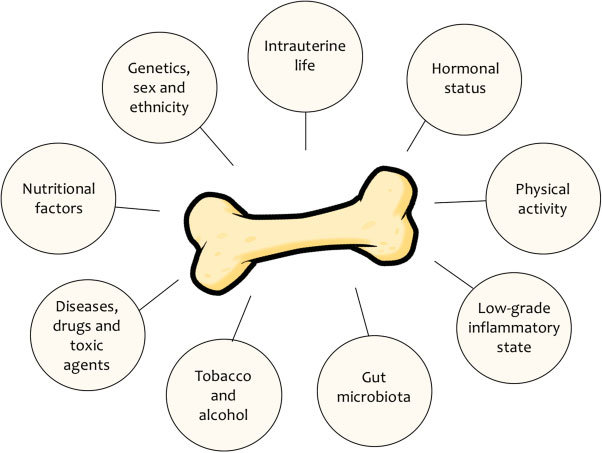
- The calcium level of your diet – A calcium-deficient diet contributes to decreased bone density, initial bone loss, and risk of fractures.
- Use of tobacco and alcohol – Tobacco use may contribute to bone weakness, according to research. Similarly, more than one alcoholic drink per day for women or two alcoholic beverages per day for men may raise the risk of osteoporosis.
- Physical activity – Physically sedentary people are more likely to develop osteoporosis than physically active people.
- Race and family background – You are most likely to develop osteoporosis if you are white or of Asian descent. Furthermore, having a parent or sibling with osteoporosis increases your risk, especially if you have a genetic history of fractures.
- Eating disorders and other medical issues – Food restriction and being underweight weaken bones in men and women. Furthermore, weight loss surgery and conditions like celiac disease can impair your body’s ability to absorb calcium.
- Hormonal Balance – Thyroid hormone excess can result in bone loss. Because oestrogen levels drop during menopause, bone loss in women increases dramatically. Menstruation cessation (amenorrhea) before menopause raises the risk of osteoporosis. Low testosterone levels in men might result in a loss of bone mass.
- Several medications – Corticosteroid drugs including prednisone, cortisone, prednisolone, and dexamethasone damage bone when taken over a more extended amount of time. Proton pump inhibitors, methotrexate, various anti-seizure treatments, such as phenytoin (Dilantin), selective serotonin reuptake inhibitors, and aromatase inhibitors used to treat breast cancer, may also raise the risk of osteoporosis.
How can I maintain the health of my bones?
You should follow the mentioned tips to keep your bones healthy.
- Eat calcium-rich foods to maintain healthy bones – Calcium is the primary component of bones. Calcium can be found in foods including such as:
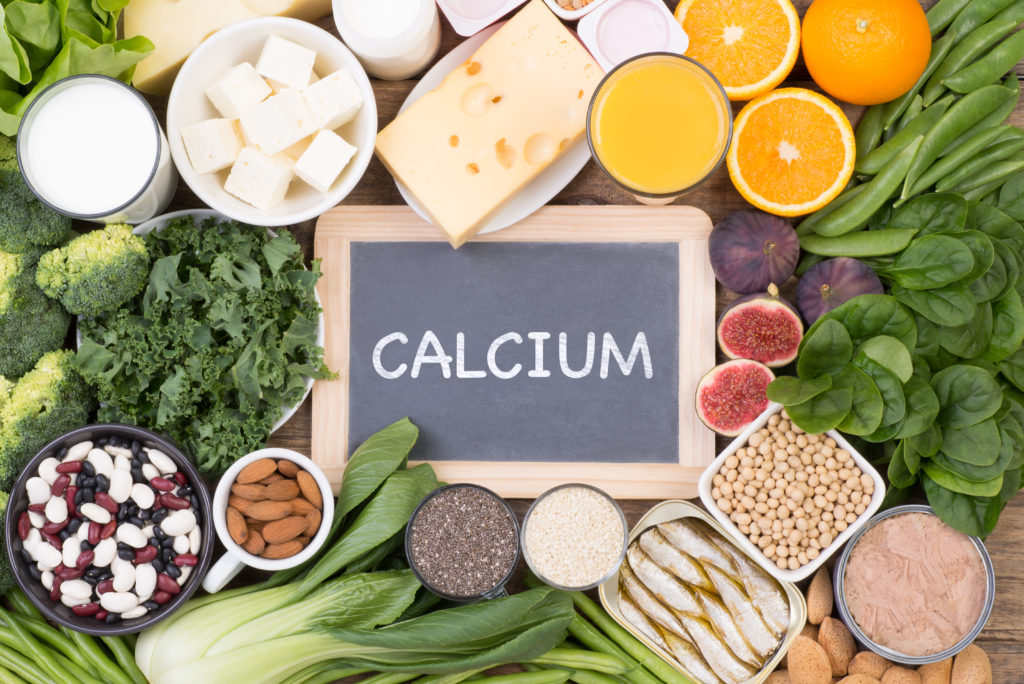
- Cheese
- Yogurt
- Milk
- Plant-based beverages with added nutrients, such as fortified soy beverages
- Beans, fish, nuts, and leafy green vegetables like collards and spinach are all excellent protein sources.
A Calcium Blood Test is generally done to measure the total calcium in the blood. We can get an idea of the general health of bones and teeth by measuring the calcium level in the blood.
You can do the Calcium Blood Test from BookmeriLab at a very reasonable price. BookmeriLab is India’s Largest E-Health portal.
Almonds, broccoli, kale, canned salmon with bones, sardines, and almonds are additional excellent sources of calcium. If it’s hard to consume enough calcium through diet alone, talk to your doctor about taking supplements.
- Consume enough vitamin D to maintain your bones strong and healthy – Vitamin D regulates calcium absorption from food. Vitamin D can be found in: –
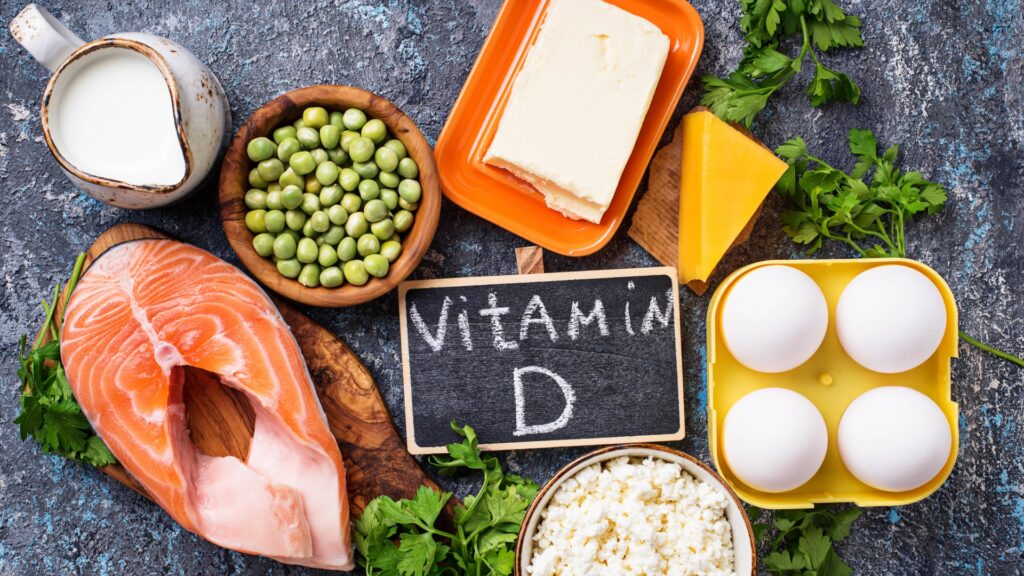
- Egg yolks
- fatty fish, including sardines and salmon
- Margarine
- Dairy products
Some individuals struggle to consume enough vitamin D. Health professionals advise all individuals over 50 to take a 400 IU vitamin D pill daily. Consult a healthcare professional if you don’t drink milk or plant-based beverages that have been fortified. They can assist you in determining whether you require a vitamin D supplement in addition to consuming other foods like this breakfast burrito that is high in vitamin D. Ideal for a quick breakfast on the go.
- Keep yourself physically active to maintain strong bones.
Gain. at least 150 minutes of physical activity per week. Here’s below are a few tips to keep your bones healthy.

- Strength exercises include tennis, golf, low-impact aerobics, walking, running, and trekking.
- Activities that build muscle, such as pushups and weightlifting, maintain the strength of your bones.
- Improve your coordination and balance with stretching exercises like yoga and tai chi to reduce your risk of falling and fracturing bones.
- Restrict your caffeine consumption to keep your bones strong
Caffeine consumption can reduce the amount of calcium absorbed. Adults should not consume over 400mg of caffeine daily, approximately 3 cups coffee (1 cup = 8oz or 237mL). Caffeine should be restricted to 300 mg daily for pregnant and breastfeeding women (about 2 cups per day).
- Limit your alcohol consumption to keep your bones strong
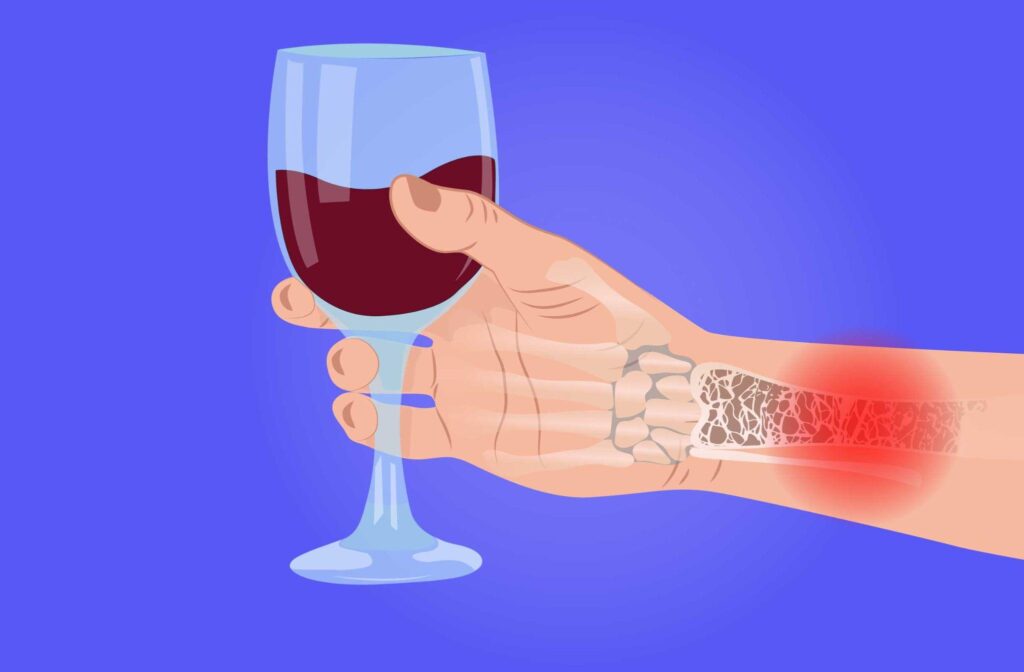
Increased alcohol consumption has been linked to decreased bone strength, enhanced risk of fracture, and osteoporosis. Men who drink moderately have no more than two drinks per day, while women should have no more than one. Light drinking is described as consuming fewer than three drinks per week over a year.
People should limit the consumption of their alcohol as it can cause various health-related problems.
- Consume minimal amounts of salt (sodium) to maintain healthy bones
An intake of sodium raises the amount of calcium excreted in the urine, which might contribute to osteoporosis and enhanced fracture risk. If there is insufficient water, the balance of sodium and water in the body can be interrupted.
Salt contains sodium, which can decrease bone density when consumed in excess. Adults in excellent health only require 1500 mg of sodium daily. Compare food labels to find items that are low in salt.















